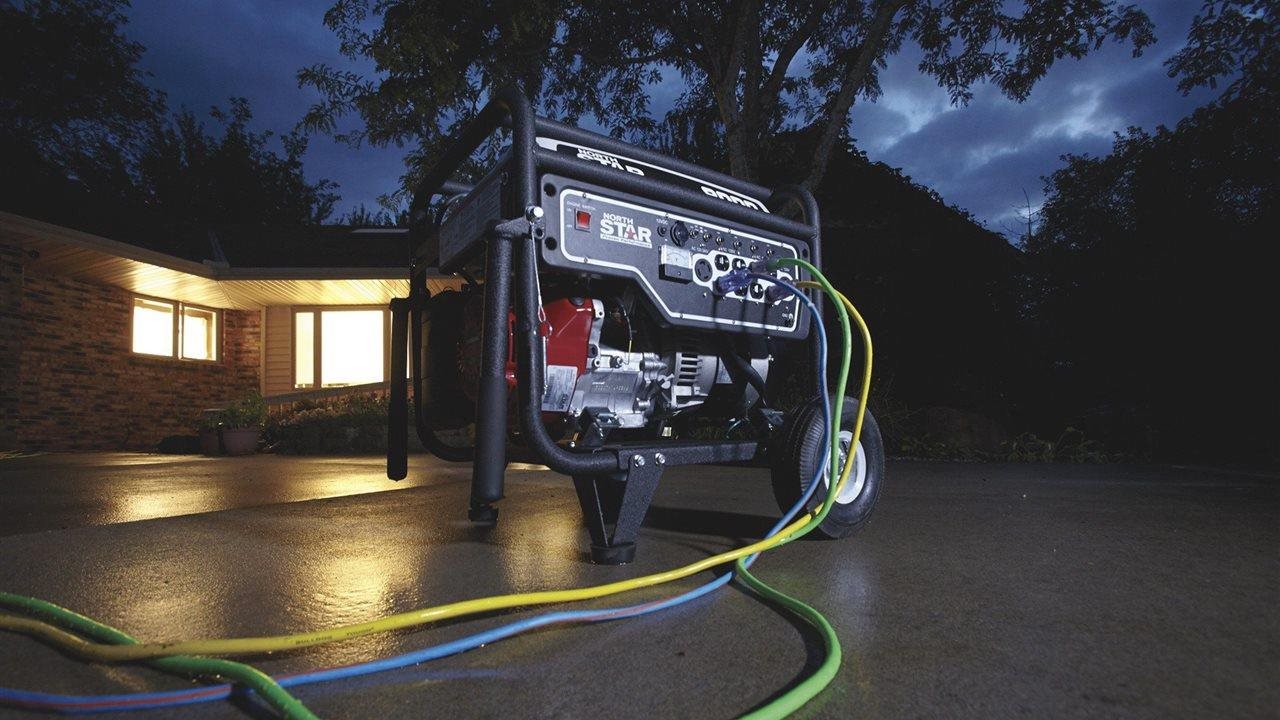
(BPT) – Tornados, floods, hurricanes and more — severe weather is increasing around the world. Are you ready if a threatening storm hits your home?
“Storm frequency and intensity is increasing, which means it’s important for homeowners to take a proactive approach to severe weather preparedness,” said Jonathan Green, senior regional parts and service manager at Northern Tool + Equipment. “Having the right equipment and gear on hand and ready to go means your family can stay as safe and as comfortable as possible.”
Power outages and severe weather
Power to your home may be intermittent and unreliable during bad weather. In worst cases, entire power grids can go out for days or weeks at a time. Green says it’s important to prepare by having flashlights ready, stocking up on batteries and properly maintaining a generator to power necessities in a home.
If a major storm is approaching, the American Red Cross recommends unplugging small appliances to reduce potential damage from power surges that could occur. Always follow orders from authorities, who may tell you to turn off utilities to prevent damage to your home or within the community.
If you are without electricity, a portable generator can help power critical household equipment. For example, the NorthStar Portable Generator with Honda GX390 OHV Engine has a fuel-efficient engine with a digital ignition for easy startup. The control panel features 10 outlets and a 12-volt DC outlet, so you can power things like a well pump, a refrigerator and freezer, lights and electronics like TVs and cell phones to stay connected to emergency information.
When selecting a generator, it’s important to know the right size for your needs, which is based on the rated wattage of what you want to power — as not all generators have the same power draw. To do this, add up the wattage of tools, appliances and motors you will want to run at the same time, then select a generator with the running wattage rating to match or exceed the total load. Items with electric motors require additional surge wattage at startup that can double or triple the normal wattage requirement — so look at the surge watts required.
Green adds that having a generator is half the battle as it is just as important to use the equipment safely and maintain it properly by following generator safety and maintenance tips:
1) Store units properly: When not in use, keep your generator clean and covered in a safe, accessible location.
2) Perform maintenance: Being prepared is key, and a critical component of that is making sure your gear is ready in advance of serious weather. To that end, test the generator monthly to ensure it’s working properly. Just like any other engine, a generator requires maintenance, so keep up with the manufacturer’s recommended schedule for things like oil changes and spark plugs. Northern Tool + Equipment offers parts, service and repair expertise to ensure that generators, water pumps and other equipment is tuned up and ready.
3) Use fresh gas: There is approximately a 90-day shelf life on fuel, especially in smaller quantities like what would be in the gas tank of a small engine or a small gas can. Never use bad gas in a generator or you risk damage to the engine.
4) Run units wisely: Place generators outdoors away from your home, but shielded from rain as much as possible. Never run generators inside or covered tightly because this can clog spark arrestors and filters resulting in a fire hazard. Additionally, not ventilating exhaust increases risk of carbon monoxide poisoning.
5) Keep it clean and level: Always run the generator on level surfaces free from debris or other items. Non-level or vibrating surfaces may result in problems including poor engine lubrication, which can cause overheating.
6) Don’t overdraw power: The size of your generator will dictate how many things it can power. Keep in mind, items with heating elements or motors often need double their rated wattage to start up, which is called surge.
“Having a generator can be life changing during extreme weather, and it’s important to use this equipment safely and maintain it properly so you’re ready no matter what so your family is ready when severe weather comes your way,” said Green.
